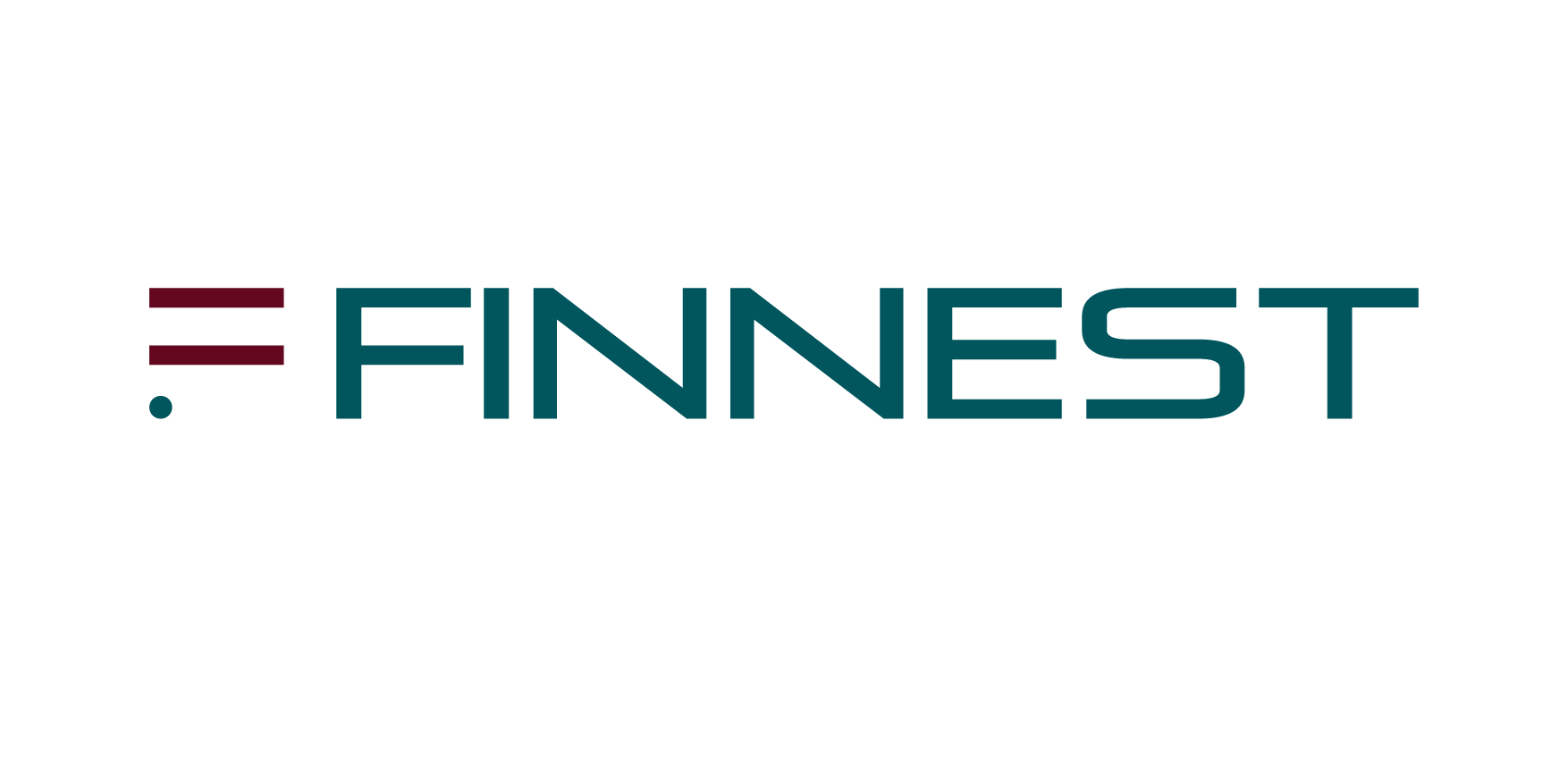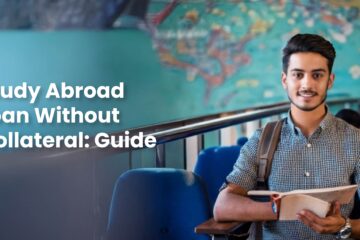Moving abroad is an exciting milestone, whether for study, work, or a long-term stay. It grants us a wide scope of opportunities and exploration. However, this journey involves financial obligations that must be acknowledged. Proper financial planning is crucial to ensure a seamless transition into your new life, from visa applications to managing living expenses and emergencies.
Numerous students face financial difficulties when they don’t comprehend financials and don’t have a well-defined strategy. These include depleting funds or grappling with unfamiliar banking processes – just when they should be establishing roots and living a good life abroad. Luckily, by preparing well with the help of established financial establishments, you can steer clear of these traps and concentrate on relishing the upcoming new experiences.
In this blog, we’ll walk you through 10 essential financial steps to take before you leave, ensuring you’re well-prepared from day one in the foreign land. Whether you’re a student, expat, or traveler, these tips will help you avoid unnecessary stress and give you peace of mind.
Plus, if you need personalized support along the way, Finnest’s financial experts are here to guide you through every step—from meeting visa requirements to creating a budget tailored to your destination.
Let’s dive in and ensure your financial foundation is ready for this life-changing journey!
1. Create a Detailed Budget
Creating a thorough budget is a crucial financial step to take before relocating to another country. Having a carefully planned budget allows you to predict your expenses and guarantees that you have sufficient funds to pay for necessary expenses with ease.
What to Include in Your Budget:
- Accommodation: Rent, utilities, and any security deposits.
- Food and Groceries: Plan for both dining out and cooking at home.
- Transportation: Public transit, taxis, or fuel if you’re driving.
- Visa Fees & Renewals: Certain visas require planned renewal fees.
- Healthcare & Insurance: Many countries require health insurance—don’t overlook this.
- Emergency Fund: Save extra money for unexpected costs like urgent travel or medical bills.
Pro Tip:
When planning your budget, overestimate costs rather than underestimating. The cost of living may be higher than you expect, especially in the first few months while you settle in.
Why It’s Essential:
Maintaining a comprehensive understanding of your finances and following up on it helps prevent excessive spending and guarantees you won’t deplete your funds while staying. Budgeting provides reassurance and helps to make your move overseas easier.
If you’re not sure how much money to allocate for your destination, Finnest’s financial experts can assist you in creating a personalized budget that includes tuition fees and living expenses. Their individualized method guarantees that you are completely ready for your experience overseas.
2. Open an International Bank Account
Handling your finances in another country can be simplified with an overseas bank account. It guarantees that you can easily access your funds without incurring high charges, enabling you to manage costs such as rent, food, and educational fees more effectively. Several banks provide specific accounts for expatriates and students with the goal of reducing foreign transaction charges.
Benefits of Having an International Bank Account:
- Lower Transfer Fees: Avoid costly international transfer charges.
- Access to Local Currency: Withdraw cash directly in the local currency without exchange rate surprises.
- Convenient Online Banking: Monitor your expenses and manage transactions easily from anywhere.
- Seamless Fund Transfers: Move money between your home country and your new country as needed.
- Eligibility for Local Payment Systems: Some services like public transportation cards or utilities may require a local bank account to operate.
When to Open the Account:
It’s smart to set up your account either before departure or shortly after arriving. Many banks in popular destinations like Canada, the UK, Australia, and Europe allow remote account openings or fast-track processes for students and expats.
How Finnest Can Help:
Finnest can assist you with bank statement preparation and ensure you meet the visa financial requirements. Additionally, we can advise on which international bank accounts or services best suit your needs, helping you avoid unnecessary fees and banking delays.
3. Save for the First 3 Months’ Living Expenses
When moving abroad, it’s essential to have at least three months’ worth of savings to cover your living expenses. Settling into a new country takes time, and having sufficient savings ensures you won’t run into financial stress during the initial phase. Many students or expats may need a buffer until they get used to the new cost of living or receive scholarships, family contributions, or other income.
Expenses to Cover During the First 3 Months:
- Accommodation Costs: Rent, utilities, security deposits, and maintenance fees.
- Food and Groceries: Allocate a budget for dining out until you’re comfortable cooking at home.
- Transportation: Costs for public transit passes, taxis, or bike rentals.
- Phone and Internet Plans: Stay connected by securing a local phone plan and internet connection.
- Health Insurance and Emergencies: Plan for medical expenses and minor emergencies that may arise.
Why the First 3 Months Are Critical:
This initial period involves a lot of unpredictable expenses, including deposits, paperwork, and setting up basic utilities. Having savings gives you breathing room, letting you focus on settling in without worrying about cash flow issues.
Pro Tip:
Use cost of living calculators to estimate expenses in your new city and adjust your savings plan accordingly. Factor in currency exchange rates to avoid unpleasant surprises when transferring your savings abroad.
How Finnest Can Help:
Finnest’s financial consultants can assist you in planning for the first few months, ensuring you save enough to avoid unnecessary stress. If you need help meeting visa financial requirements, our team is available to provide timely solutions and guidance for a safe and secure study abroad journey.
4. Get the Right Travel and Health Insurance
It is crucial to obtain both travel and health insurance before relocating to another country. Proof of insurance is needed by several countries for visa approval, providing coverage for medical emergencies, trip cancellations, and unforeseen events. Lacking insurance could lead to expensive medical problems, causing avoidable financial pressure.
Types of Insurance to Consider:
- Health Insurance: Covers medical expenses, doctor visits, and hospital stays.
- Travel Insurance: Protects against flight cancellations, lost baggage, or travel delays.
- Emergency Evacuation Insurance: Ensures coverage for transportation back to your home country in the event of a medical emergency.
- Personal Liability Insurance: Protects you financially in case you accidentally damage property or cause injury.
- Insurance for Students: Some countries require students to have specific insurance policies to cover the duration of their studies.
Pro Tip:
Research whether your destination offers public healthcare access or if international students and expats are required to purchase private health insurance. Ensure your insurance policy meets the requirements of your visa.
Why Insurance is a Must:
Unexpected medical emergencies or trip cancellations can quickly drain your savings. Having the right insurance policy ensures you’re protected from financial shocks and lets you focus on enjoying your new life abroad with peace of mind.
How Finnest Can Help:
Finnest offers visa financial consultations and can guide you in choosing the right health and travel insurance plans that meet immigration requirements. We can also help you prepare insurance documentation to streamline your visa approval process.
5. Understand Currency Exchange Rates
Fluctuations in exchange rates can have a major effect on your budget and financial planning. Small changes in exchange rates can have a big impact on your savings and monthly expenses when transferring funds or managing living expenses in a different currency from your home country.
How Exchange Rates Impact Your Finances:
- Tuition Fees and Rent: Paying large amounts (like tuition) in foreign currency at unfavorable rates could increase your expenses.
- Monthly Budgeting: Frequent changes in the exchange rate could impact your daily expenses.
- Savings Transfers: Transferring your savings at the right time can help you maximize your money.
- Loan Repayments: If you’re repaying a loan in your home currency, exchange rate fluctuations may affect your repayment amount abroad.
Pro Tip:
Monitor exchange rates using apps or currency converters and transfer funds when rates are favorable. Some international bank accounts also allow you to lock in a specific rate for future transactions, minimizing risks.
Why You Need a Plan:
If you don’t manage currency exchanges wisely, you could end up losing a significant portion of your money due to conversion fees and unfavorable rates. Strategic planning ensures you get the most value for your money.
How Finnest Can Help:
Finnest’s financial advisors can guide you in planning your currency exchanges to minimize losses. We help clients identify the best times to transfer funds and recommend banking solutions with lower conversion fees. With our support, you can make the most of your savings without worrying about fluctuating exchange rates.
6. Pay Off Debt Before You Leave
Carrying unresolved debt from your home country while managing new expenses abroad can become a heavy financial burden. Paying off as many debts as you can before moving is a smart decision to prevent unnecessary stress and interest from building up. Getting rid of debts enables you to concentrate on your fresh start without the stress of increasing financial responsibilities.
Why Clearing Debt Matters:
- Reduced Stress: Starting fresh abroad with fewer financial commitments helps you focus on settling in.
- Avoid Currency Complications: Repaying loans in a different currency may increase your debt due to exchange rate fluctuations.
- Save on Interest: Paying off high-interest loans before you move saves money in the long run.
- Improve Credit Score: A good credit history in your home country could benefit you if you need loans or credit abroad.
Pro Tip:
If you can’t pay off all debts before your move, prioritize high-interest debt first. Create a plan to manage remaining debt and set up automated payments to avoid late fees while you’re away.
Why This Step is Important:
Managing debt from afar can be challenging, especially with exchange rate fluctuations and unfamiliar banking systems. By eliminating or reducing debt before you leave, you’ll have more financial freedom and fewer distractions while you adjust to your new environment.
How Finnest Can Help:
If you need support developing a debt repayment plan, Finnest’s financial consultants can help. We provide guidance on prioritizing debts and offer personalized advice to ensure you have a smooth financial transition. Additionally, we assist clients with budgeting and managing loan repayments across currencies.
7. Research Financial Aid and Scholarships
For students planning to study abroad, scholarships, grants, and financial aid can significantly reduce your financial burden. These funding options not only help cover tuition fees but also provide support for living expenses, making your stay more affordable and less stressful.
Types of Financial Aid to Explore:
- Scholarships: Many universities and governments offer merit-based or need-based scholarships for international students.
- Grants: These funds, usually provided by institutions or governments, don’t need to be repaid.
- Student Loans: Education loans with favorable interest rates are available from both government and private institutions.
- Sponsorships: Family sponsorships or support from organizations can help meet financial requirements for your visa.
Pro Tip:
Apply for multiple scholarships and grants early, as many funding programs have strict deadlines and require detailed applications. Research specific programs available in your destination country to maximize your chances of securing aid.
Why Financial Aid is Important:
Receiving financial aid allows you to focus on your studies without the constant stress of managing expenses. Additionally, using grants or scholarships can reduce your reliance on loans or temporary solutions like show money services.
How Finnest Can Help:
Finnest’s financial advisors can guide you through the process of finding scholarships, grants, and student loans that align with your needs. We also offer assistance with bank statements and proof of funds letters, ensuring your visa application meets immigration requirements. With Finnest by your side, you’ll have the support needed to secure financial aid and pursue your dreams abroad.
8. Track Spending with Budgeting Apps
Managing expenses in a new country can be tricky, but budgeting apps can help you stay on top of your finances. These apps make it easy to monitor your spending, set savings goals, and avoid overspending, ensuring you stay within your planned budget while abroad.
Best Budgeting Apps for International Students and Expats:
- Mint: Tracks your spending and categorizes expenses automatically.
- YNAB (You Need A Budget): Helps you plan every dollar and encourages saving habits.
- Spendee: Allows you to manage multiple currencies, making it ideal for international travelers.
- Revolut: A mobile banking app with built-in budgeting tools and low exchange fees.
- PocketGuard: Keeps tabs on your spending and shows how much money you have left after bills.
Pro Tip:
Set spending limits for non-essential items within the app to keep your finances in check. Most budgeting apps allow alerts and notifications to warn you when you’re close to your limit.
Why Using a Budgeting App is Essential:
In a new environment with a lot of things happening, it’s easy to end up spending a lot, especially on things like restaurants, public transport, or subscriptions. Installing and using a budgeting app provides real-time insights into your financial habits, helping you make informed decisions and stick to your budget.
How Finnest Can Help:
In addition to recommending the best budgeting tools, Finnest offers financial consultations to help you build a sustainable budget. Whether you need help estimating living costs abroad or managing expenses in multiple currencies, our experts can guide you every step of the way.
9. Build an Emergency Fund
Having an emergency fund is essential when moving abroad. Life can be unpredictable, and having 3 to 6 months’ worth of savings set aside ensures you are financially prepared for unexpected events like medical emergencies, job delays, or urgent travel needs.
What to Include in Your Emergency Fund:
- Medical Expenses: Covers costs for emergencies that insurance may not fully reimburse.
- Travel Costs: Funds for an unplanned trip back to your home country in case of family emergencies.
- Temporary Accommodation: In case your rental situation changes or is delayed.
- Essential Bills: Utilities, phone bills, and other fixed costs you can’t afford to miss.
- Living Expenses: Food and transportation costs if your income is delayed.
Pro Tip:
It is a smart choice to maintain your emergency fund in a separate account from your regular savings to prevent using it for non-emergency purchases. Choosing a high-yield savings account or online wallet with immediate access is a wise choice for safely storing your funds.
Why an Emergency Fund Matters:
Having an emergency fund gives you a sense of security and prevents the need for borrowing money or using credit cards during difficult times. It serves as a monetary buffer that allows you to remain concentrated on your objectives, whether you are studying or working in another country.
How Finnest Can Help:
Finnest’s financial experts can help you determine how much to save based on the cost of living in your destination. If you need assistance building your emergency fund or managing expenses abroad, Finnest offers tailored financial planning to keep you on track.
10. Consult Financial or Legal Experts Before You Go
Handling the financial and legal aspects of moving to a different country can pose challenges. Getting advice from financial advisors or immigration specialists ensures that you understand your obligations and are fully prepared to adapt to life in another country.
Experts can help with visa-related financial documentation, aid in creating a customized budget, and give guidance on managing debt, exchanging currency, and choosing insurance options. Their valuable advice could steer you away from costly mistakes and ensure your visa application meets all the required standards.
What Experts Can Help With:
- Visa Financial Requirements: Understanding the exact financial documentation you need.
- Budget Planning: Creating a budget tailored to your destination’s cost of living.
- Currency and Exchange Rate Advice: Planning fund transfers to avoid exchange losses.
- Debt Management: Developing repayment plans and minimizing financial stress.
- Legal Compliance: Ensuring your financial activities align with the regulations of your host country.
Pro Tip:
Always keep aside time for a quick consultation even when you feel confident about your finances. This can uncover key details you might have neglected or overseen. A small investment in professional advice can save you from significant issues down the road.
How Finnest Can Help:
Finnest offers comprehensive financial consultation sessions designed to address every aspect of your move. From meeting visa financial requirements to building a budget and emergency fund, our experts are here to help you plan for success. With Finnest, you’ll have the support you need to navigate the financial complexities of studying, working, or living abroad.
Conclusion: A Smooth Financial Transition is Key to Your Success
Moving abroad is an exciting opportunity, but smart financial planning is essential for a smooth transition. You can begin your new journey with confidence and stability by adhering to these 10 financial steps, which include budgeting, opening international accounts, obtaining insurance, and establishing an emergency fund.
If you require professional advice, Finnest is here for you. Our tailor-made financial services will help you fulfill visa requirements, handle your money effectively, and steer clear of financial traps during your journey. Get in touch with us now to move forward in your international adventure.
Frequently Asked Questions (FAQs)
1. How much should I save for living expenses before moving abroad?
It is advisable to have savings that can cover a minimum of 3 to 6 months of living costs. This consists of housing expenses, electricity, food, getting around, and other necessary expenditures. The specific quantity will vary based on the cost of living in the country you are traveling to, therefore it is important to conduct thorough research and plan accordingly.
2. What type of bank account is best for international students and expats?
Having an international bank account is perfect for students and expatriates. Search for accounts that have minimal foreign transaction fees, simple currency conversion options, and online banking capabilities to easily handle your finances while abroad. Certain banks provide specialized accounts designed for the unique requirements of international students.
3. Why is it important to build an emergency fund before moving abroad?
Having an emergency fund means you are ready for unforeseen situations such as sudden medical needs, urgent trips, or unexpected costs. Having a reserve of savings for 3 to 6 months gives a sense of security and prevents the need for loans or credit cards during difficult times.
4. What should I do if I can’t pay off all my debts before moving abroad?
If you can’t completely pay off your debt, prioritize paying off high-interest debt first. Additionally, it is important to establish a payment schedule for any outstanding debts and arrange for automatic payments to prevent incurring late charges during your absence. Getting advice from a financial advisor can assist in effectively managing your debts.
5. How can I find scholarships and financial aid for studying abroad?
Begin by investigating scholarships offered by universities, grants from the government, and sponsorships from private organizations. Numerous organizations provide specialized scholarships for foreign students depending on their academic achievement or financial circumstances. Finnest is able to assist you in locating suitable financial aid choices and can aid in getting ready visa-mandatory financial paperwork such as proof of funds.




